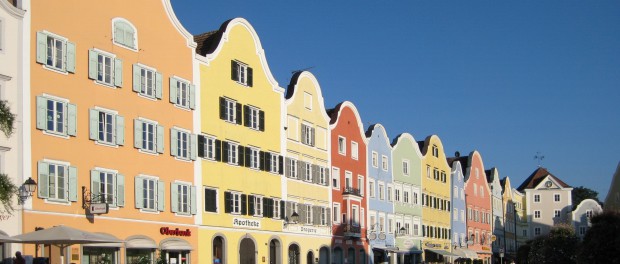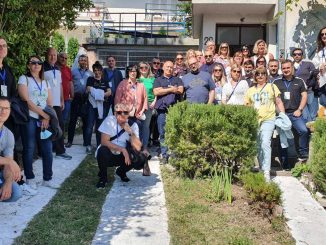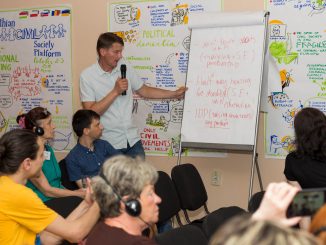“Full recognition of the right of rural communities to a quality of life and standard of living equal to that of urban populations. Full participation in political processes.”
These two demands emerged strongly from the Manifesto of the Second European Rural Parliament. 240 people representing rural communities from 40 European countries, met in the picturesque Austrian town of Schärding, 4-6th November. These the seven page European Rural Manifesto was approved.

Participants – from the EU and its nearest neighbours – called for a refreshed and equitable partnership between people and governments. Part of this process much include “a major review of the condition of rural areas within the EU. The conclusions from this review should be reflected in enhanced focus upon rural areas within all relevant EU programmes and funds” according to co-ordinators.
Contemporary pan-European realities were also to the fore in the thinking and organising of this event. The town of Schärding, in which the gathering was held, is receiving 2000 refugees a day on their way across the border between Austria and Germany. For many rural areas, what is undoubtedly a crisis also offers an opportunity to integrate refugees and other newcomers. However, organisers pointed out, this must be done with investment in job creation, housing, services and infrastructure. The European Rural Parliament called for “a warm-hearted response, based on solidarity between peoples” to the refugee crisis.
The European Rural Parliament is jointly initiated by three pan-European rural networks – European Rural Community Alliance (ERCA); PREPARE Partnership for Rural Europe; and European LEADER Association for Rural Development (ELARD). Members of these networks are found throughout the EU and in the Western Balkan and Black Sea countries.
More
Previous ARC2020 posts on ERP





